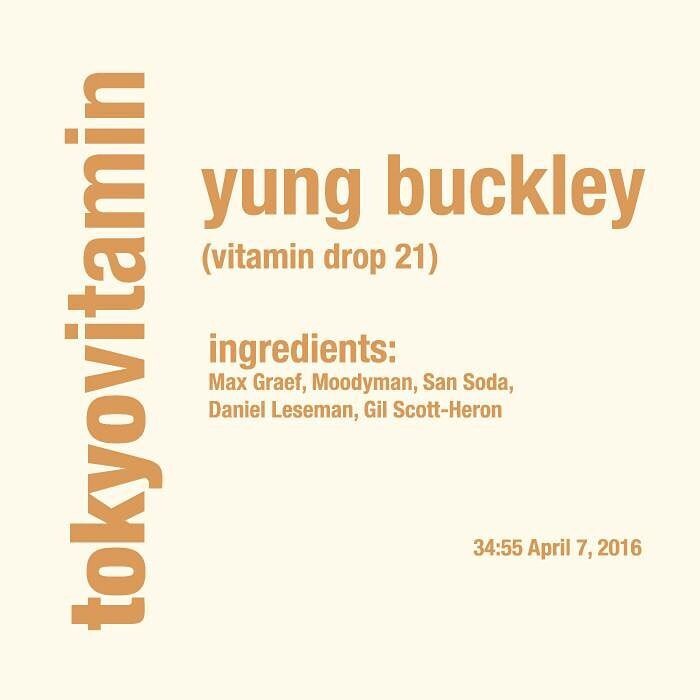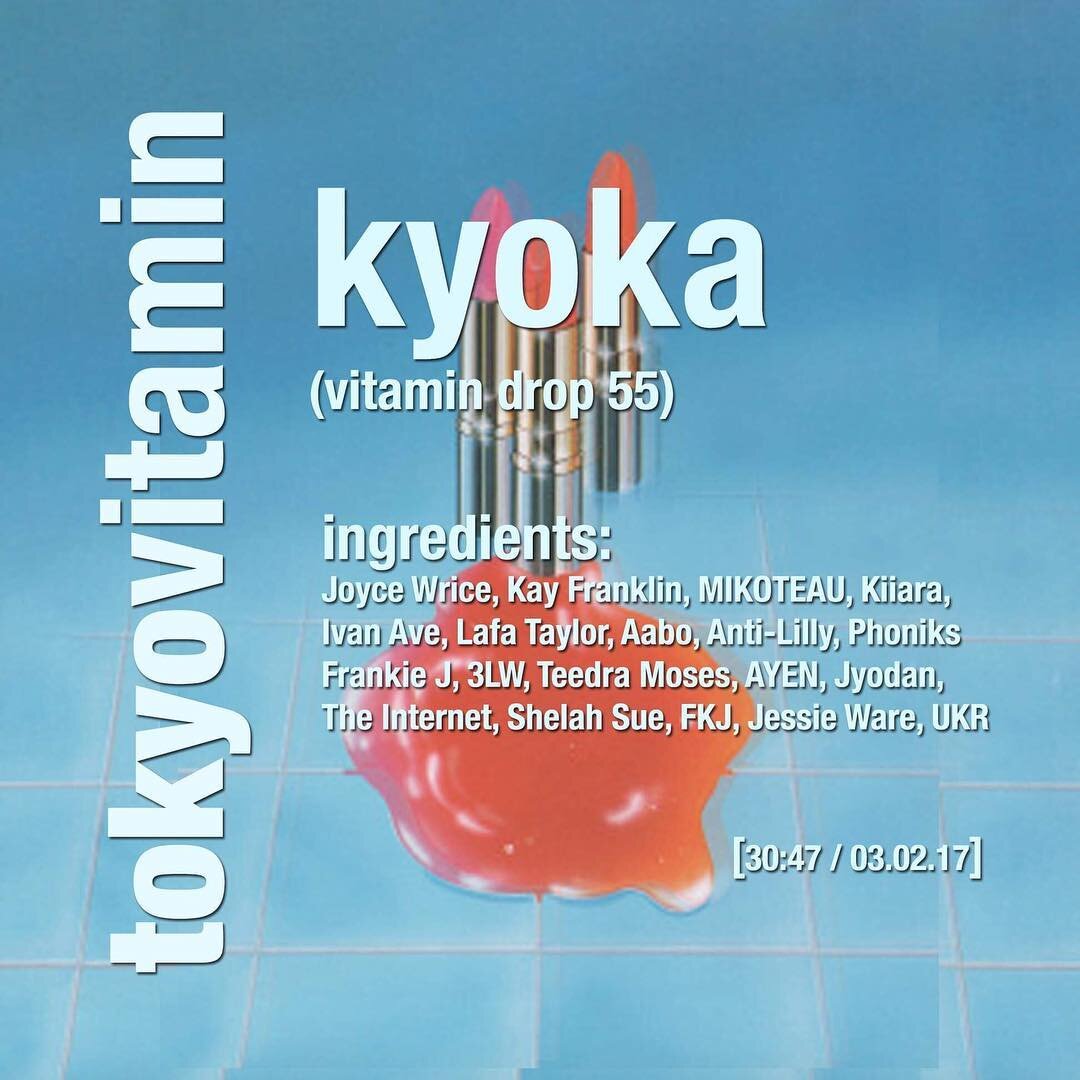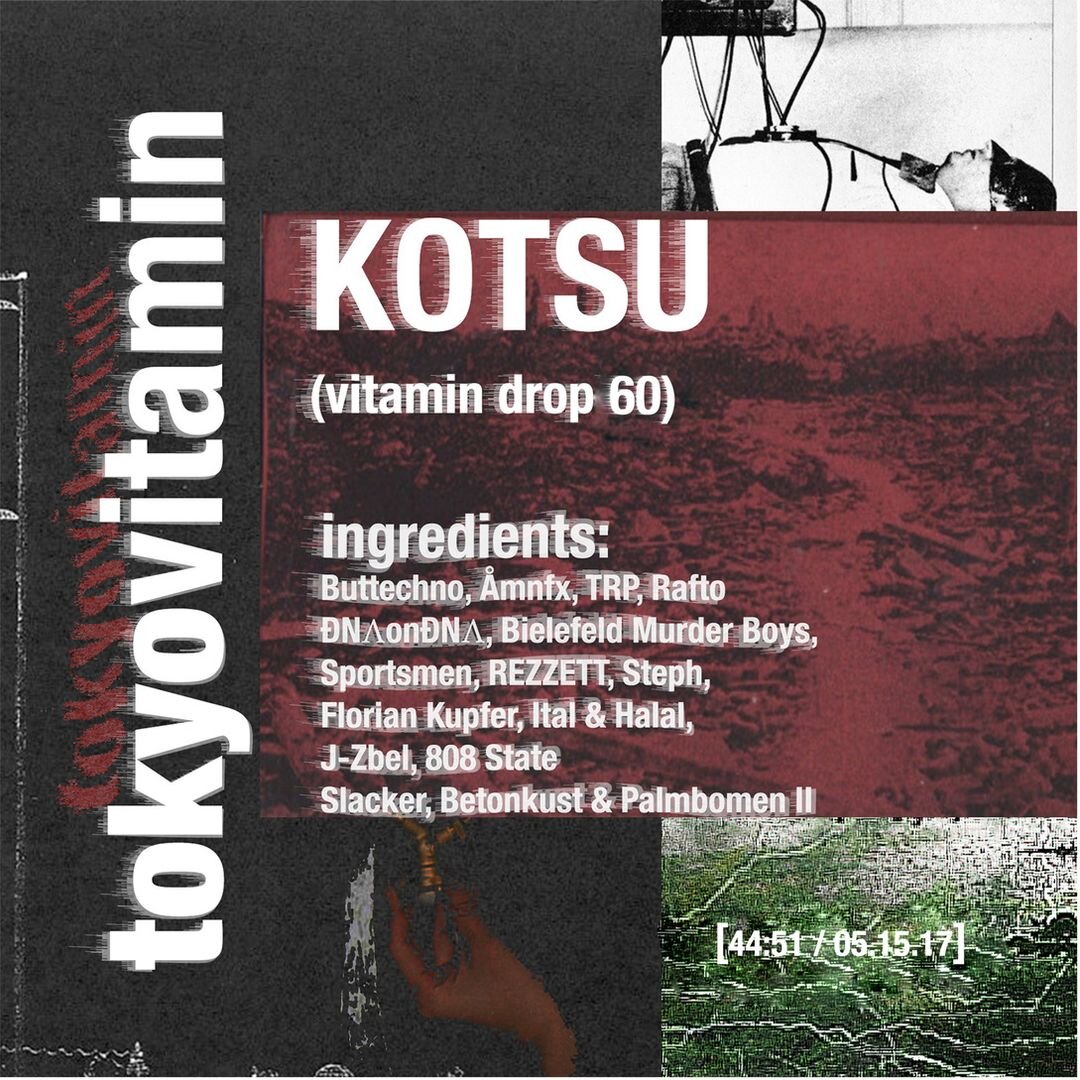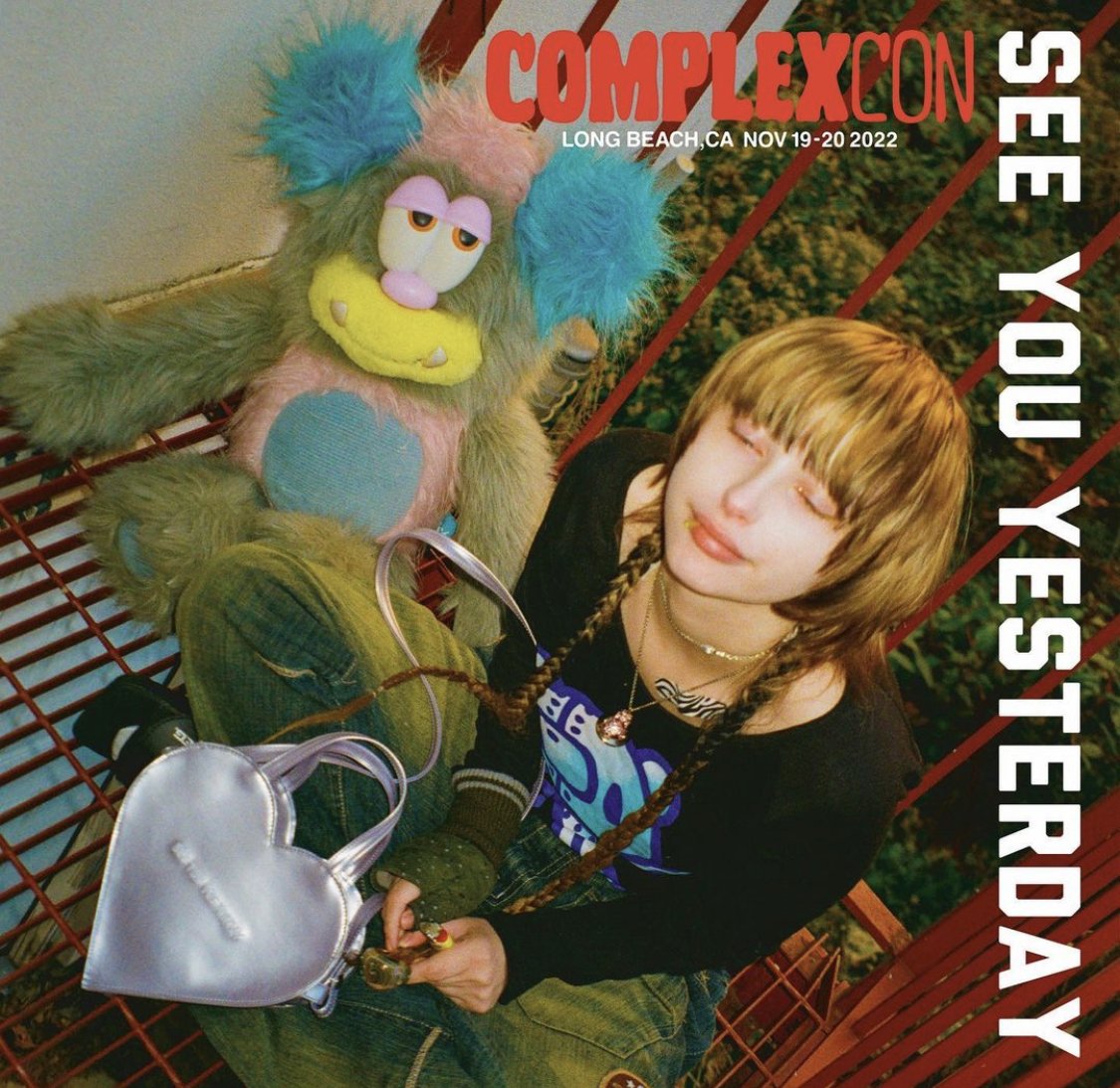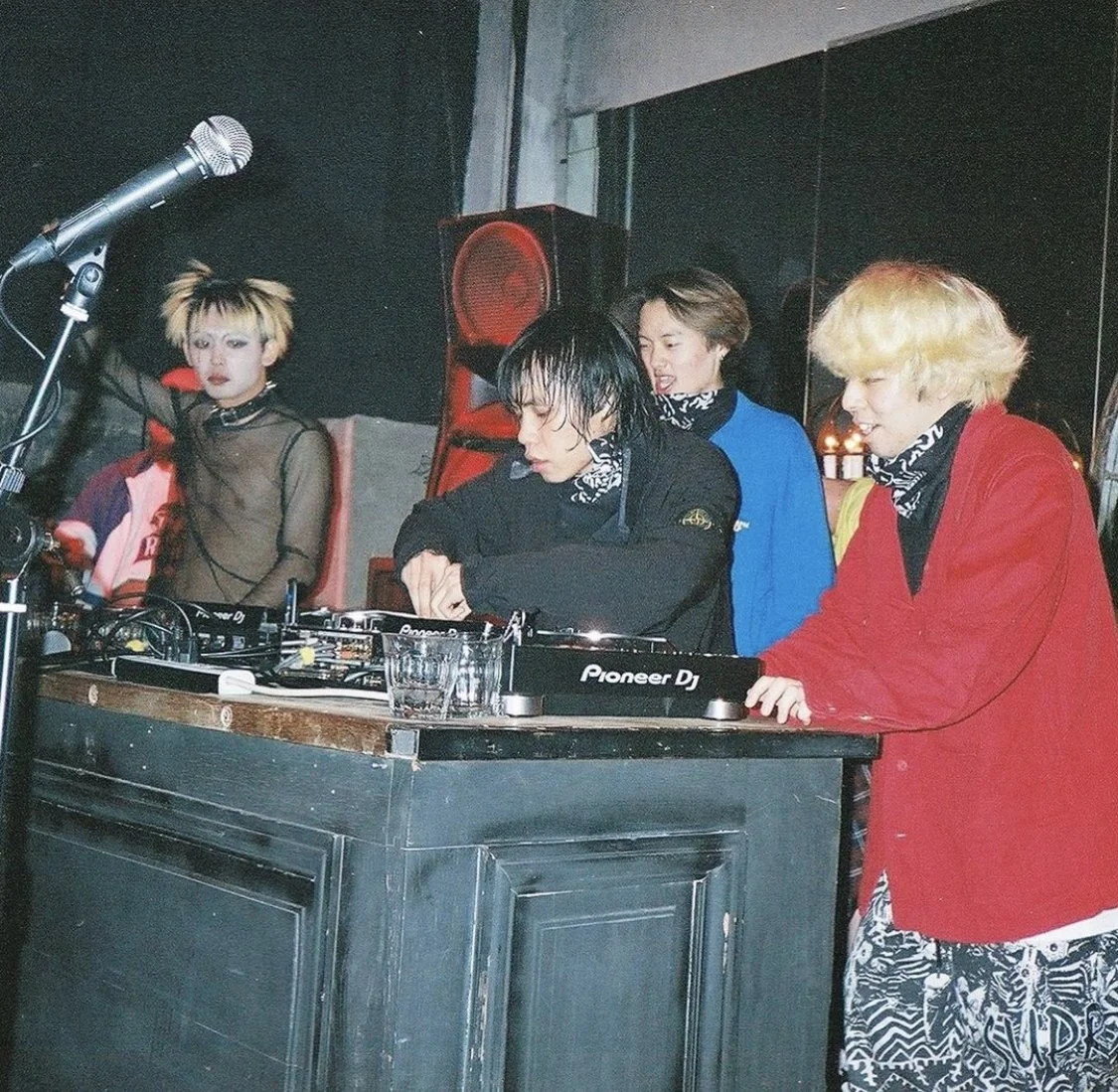SHAPING THE JAPANESE MUSIC SCENE: MEET TOKYO VITAMIN

The Japanese music scene has traditionally been so extremely diverse that only a select handful of names have made it to the music libraries of Western listeners - at the expense of the vast majority of Japanese musicians that simply get lost in translation.
A perfect example for this notion are Teriyaki Boyz, who have made it to International fame for their iconic Fast and the Furious: Tokyo Drift soundtrack. Yet for the vast majority, this is where their knowledge of Japanese music comes to an abrupt end.
So what is really happening in the Japanese/Tokyo underground and popular music scene? Who is really poppin’ and shaping the music world these days? If you’re asking yourself these questions, there's really no way around Tokyo Vitamin.
Based in Shibuya, right in the heart of Tokyo, the super connected collective has been the mastermind behind some of the capitals most active pre-Corona functions as well as fashion ventures with streetwear giants like Verdy or Hysteric Glamour. Besides that, they also work together with young and emerging local talent as part of their own music label.
After a few years of honing their craft, they recently had their first overseas stint in the US as part of ComplexCon 2019, where they hosted an afterparty and sold limited-edition merchandise at their very own booth. So, when you’re planning your post-Corona Tokyo travel itinerary, make sure to keep an eye on their social channels (to stay up to date on their upcoming projects) since Tokyo Vitamin is one of the undisputed key players and access points to the Tokyo underground music scene.
Could you please introduce yourself and Tokyo Vitamin to the Sabukaru Network?
V: I’m Vick, a couple of my friends and I run a label called Tokyo Vitamin. We’re all based in Tokyo.
Can you tell us a little bit about how everything started and what exactly Tokyo Vitamin does?
V: I came to Tokyo about 4 or 5 years ago. Around that time, I met a lot of friends who shared the same interests and tastes in music. We started throwing parties and creating mixes with different people in Tokyo. Since then, we’ve transitioned more into operating as a label and working with artists in Japan, but also from around the globe, which is where we’ve always tried to go.
What was the idea behind Tokyo Vitamin?
V: We wanted to show in our own way what can come out of working with creatives in Tokyo.
How would you describe the Tokyo music scene?
V: There’s a lot of subcultures for sure, even just within music. You have different collectives and DJ groups that play in different spots. My friends and I like to go to these parties and events. They might not always be the types of events that we would host, but it’s still fun to go out and see different spots and DJs. I think that there’s a great appreciation for different types of music in Tokyo, and people are consistently doing their own small events. I think that’s really what makes the scene move and advance.
Something that’s maybe more of an American perspective too is trying to start something on your own, instead of having to join or be a part of something. I think the idea and spirit of doing things on your own with your friends is definitely a big part of what helped us get our start. What’s cool is there’s always people who are willing to collaborate here.
Fast forward to 2020, COVID hit, how did that affect the Tokyo music scene?
V: It’s case by case all across the world but I guess for Tokyo, we don’t have as many events anymore. People are worried about going to live venues which is completely understandable. I think that events are slowly coming back though. Smaller venues that are essential for the collectives I mentioned before have been having some trouble unfortunately. The lack of events has brought down people’s energy levels and everyone’s just kind of trying to figure out what the priorities are in their lives right now. We’re just trying to do what we can.
There were some initiatives in and around Tokyo to help try and save some of these key venues like the Beat Cafe in Dogenzaka. How hard was it for you guys to keep the energy up through that time? How did the kickstarter for the Beat Cafe come together?
V: Beat Cafe is somewhere we’ve always gone to go hangout and drink with our friends and Katoman, the manager, is somebody everyone knows in Tokyo. We’ve held pretty good events there. Everytime I ask Katoman, “this artist is in town, he wants to do a small party, can we do it here?” He always says yes. Everyone’s gotta go tap in with Katoman and say what’s up. As for the crowdfunding, Beat Cafe is obviously a small venue that needed help. Katoman reached out to us and asked if we had any ideas for crowdfunding. I guess since most of us DJ, it came pretty naturally.
Can you please let the readers know who Katoman is?
K: Katoman is the buyer of this record store called Nat Records which used to be in Shinjuku. He used to write all of the disc reviews and import bands when other people in Japan had never heard of them before. He was a tastemaker for sure. All of these bands remember that Katoman put Japanese people on to them and whenever they come back to Japan, they always thank him.
Katoman (2nd from right) with Tokyo Vitamin
You were saying that a lot of venues and artists have shifted to streaming to compensate a little bit?
V: Nobody wants the spaces to go to waste. It’s important to keep a place for artists that want to create, open.
Do you think this has made the community even tighter than before?
V: Definitely. Since venues can’t invite foreign artists right now, they have to throw events with local artists. Because of COVID there are bookings that have happened where venues will mix local artists from different genres. Seeing that has been very interesting.
K: An idea we had for Tokyo Vitamin was having a big mixtape featuring all of these artists. We were hoping to drop that in April but we decided to hold off on the release until October. (The collaborative album is now available on Spotify and Apple Music)
I want to jump back to what you said about artists from different genres getting spots at more established events. Do you feel like because of COVID and the fact that foreign artists can’t come to get these bookings, it also gives a chance for younger local artists to get the spotlight and build up their base?
V: For sure. There’s a few events that started after COVID and those are growing rapidly too. The start of rave culture is something that isn’t known to everyone and I feel like that secretive side was sort of protected by COVID.
Many foreigners who come here land in the very same clubs and only get a small slice of Tokyo’s real culture. What would you advise them to do to get the best experience and exposure to the scene?
V: I wouldn’t recommend a specific venue because that’s not really how a night out works in Tokyo. If you meet people in front of a FamilyMart or something you could end up pretty much anywhere. Make friends that know spots, if you don’t have a plan maybe somebody else will have a better idea. At the corner before you go to Beat Cafe there’s a FamilyMart where a lot of interesting people will hang out. There’s also one across from Vision that could be a good place to start.
Let’s say it’s a really weird evening and you don’t run into anyone. Is there a venue that you would recommend?
V: If there’s nobody at the FamilyMart you might as well walk two minutes and go to Beat Cafe. For people from out of town it’s good because there’s a lot of English speakers there. The people there might have their own recommendations too.
What are your top 3 spots in Tokyo that you would want to share?
V: Shibuya, Harajuku, and Yoyogi. The golden triangle. It’s a small area with a lot packed in.
Everything seems to be connected and supportive within your community and the Tokyo scene. Would you say Tokyo’s different when it comes to how other creatives and crews interact?
V: One thing I noticed while travelling is that there are groups of people very similar to us in every city, especially in Asia. There are many collectives with international backgrounds but what sets everyone apart is their ability to involve the local scene as well.The local scenes that speak no English and have no international background want to be more involved and tell their stories and share their art. People like us are able to help deliver the message.
Who are some local artists that need to get put on the map?
V: There’s a lot. kZm, Young Coco, LEX, Duke of Harajuku, CYK, and TYTL (Too Young To Love) are a few of many.
There’s a very close bond between you guys and Verdy, how did this all come together? What makes Verdy such a unique character when it comes to supporting creatives and communities?
V: When we first started working on Tokyo Vitamin, we were trying to figure things out and make new friends in the city. Verdy was honestly just one of those friends. I found out about him through two brands called Carrots and Rare Panther that I really liked. A couple months after I found out about him, I moved to Tokyo. I went to the Carrots and Rare Panther pop-up shop hosted at Min-Nano in Harajuku with the friend that introduced me to Kenchan. I wasn’t really talking to anybody except for the friend that I went with because I didn’t know anyone. Before I left, I had noticed a bunch of drawings on the store window which I thought was super cool. Later that night when I checked Instagram, someone had taken a picture of the drawings and tagged Verdy. I followed him on Instagram and found out that he was hosting a gallery two weeks later. My friends and I pulled up and it was basically Verdy and two of his friends. I introduced myself to Verdy and explained that we went to the Carrots pop-up and really liked his stuff. Through that, he followed me back on Instagram and we basically just started talking and hanging out.
Verdy used to have an office by Shibuya so we would always go there and chill. Once he started doing more projects and going to America, he asked me to help out with some stuff because I really liked what he was doing and the culture surrounding it. I actively followed that culture so I was definitely in my element. The English factor too was really helpful.
K: Another thing about Verdy, his character Vick is based off of this Vick.
Sick! That’s super cool! You guys also went together to ComplexCon, right?
V: Yeah. He did a collab with Wasted Youth and Babylon in LA two years ago so I went with him for that. During that trip we met some Complex people. The year after that, Kenchan, myself, and Coco went to LA together for ComplexCon. It was fun because at ComplexCon you have to run your own booths. We were the staff, we were everything there so yeah, it was a lot of fun for sure.
Verdy at Complexcon
Besides music, you guys are bringing out zines, shirts, and a lot of other stuff. How would you describe your creative drive and what can we expect from you guys?
V: I think for Tokyo Vitamin, we’re really concentrating on the music first and then the items and the clothing. Individually, everybody’s also an artist so we’re definitely making moves. Duke is about to drop a deluxe album for his project, Kenchan’s making videos, we’re all doing our own things as well. From Vitamin as a whole, we’re doing a pop-up at the end of this month. We’ll definitely be creating more stuff to put out. That and the music is really what’s going on right now.
Can you talk about your collaboration with Hysteric Glamour? How did that come about?
V: The Hysteric Glamour collab happened all through Duke. Nobuhiko Kitamura from Hysteric Glamour had been put on to Japanese Soundcloud rap. He was really interested in it and he started listening to it a lot. He found Swing My Way by Duke and who28 and they all eventually met at an event at the Hysteric shop. They got really close. When Duke told me that he knew Swing My Way, I didn’t believe him. But nah, obviously he’s someone that’s super well respected in the industry and being able to meet him and work with him was honestly an honor. It was a lot of fun. He’s been around for a while and has seen so much happen but he has a very young, fresh energy. Super open minded. When we had our project, he had mentioned that he wanted to do something and we had the idea of asking him to create the clothing for Duke’s video for “Ice Cream.” We got really excited and then he said “let’s just make a collection.” I was honestly surprised but very very excited to do that.
What’s next for Tokyo Vitamin?
V: Like I said, we’re definitely continuing to concentrate on the music side of things. We want to work with different artists in Japan and try to encourage them to make things together that maybe they wouldn’t usually make. One thing we like to do is create remixes of different genres by different artists. There’s been a lot of new talented artists in Japan over the last couple of years. Just being able to work off of each other and create that momentum has and will be very cool. Each artist works on their own things individually, but we like to create combinations and have different people work together.
Thank you guys for taking the time to sit down with us and all the best for the future!
Credits:
Text & Interview: Vloqee, Casey Omori, Natsuki Ludwig and Adrian Bianco
Photography: Adian Tanata












